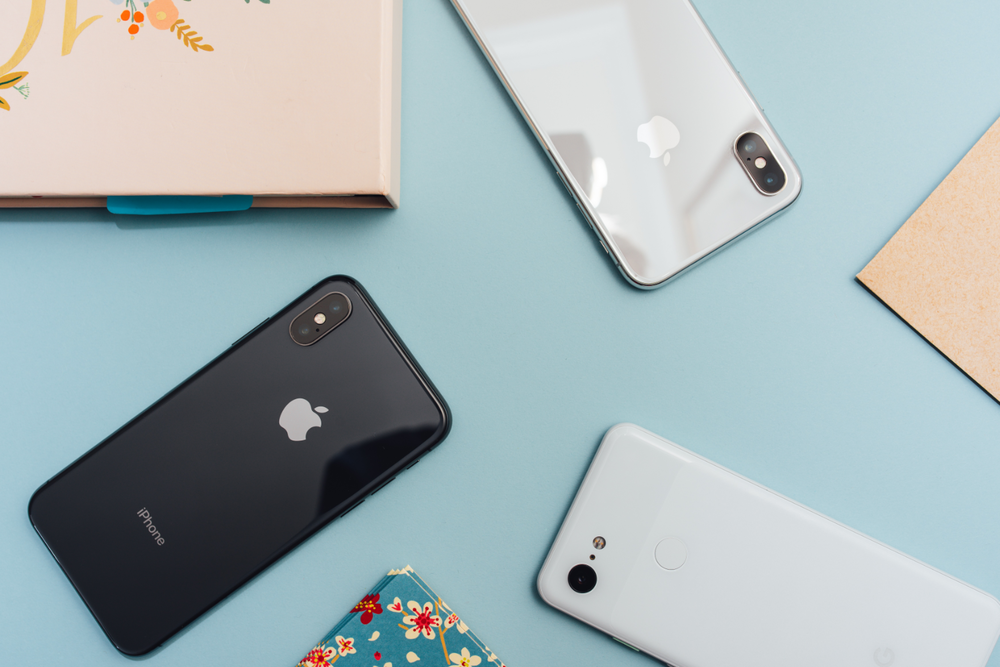By Michael Gorman
iPhone users have been getting notifications to re-download the updates for the apps installed on their device. This is similar to issues that Android users also had to face for a while. However, the iOS updates seem to download entire update files instead of just the “ghost”updates on Android phones.
Firstly, you should know that you don’t have to download these updates. Your iPhone and the apps will work just fine, whether you choose to download the updates or not unless you have a bug on the app in your iOS 13.5 that’s preventing you from opening the app. If this is the case, then downloading the updates is the only as it fixes the bug and allows you to launch the app. But if you do not have any issue like this, having to download numerous app updates feels like you are wasting your time, and more importantly, your data unnecessarily.

Having to download updates for over 40 apps with your cellular data is a big deal. It will be taking away a considerable chunk of your monthly gigabytes, whether at the beginning of the month or the end of the month, when you probably have little left. Unless you find a Wi-Fi where you can connect to and use the internet connection, you might want to turn off automatic updates on your phone.
When you turn off the automatic updates for apps, your iPhone will change how it handles the patches. iPhones install app updates quietly in the background usually. But once you turn off the automatic update feature, the updates will happen only manually. This means that you will only get push notifications when there is an available update, but you have to decide whether to update the app.
One of the primary reasons your iPhone will ask you to update numerous apps at the same time is because you just installed a new or updated operating system. Apple has introduced iOS 14 this year, and, as the usual practice is, it has new fun features.
While it might tempt you to jump straight into downloading and installing this new iOS, you should wait for a little and take your time. Downloading it at this time has some drawbacks to it. Alongside having to update more apps than usual, here are some reasons from UK writers at assignment help why you shouldn’t download it just yet.
I know it feels like iOS 14 is already available. The truth is that it is not available just yet at least in finished form. What you have available to you is the beta version. An iOS beta version is a particular version that Apple is still polishing. It’s just like every other app and software. The developers first put out a beta version to test for instability, bugs, and other issues that might need fixing before it is released officially.
Getting the beta for this type of software is not something that you just pick up on your software update page. You either have to enroll your iPhone in the beta program by Apple or be a registered iOS developer.
Whether you are waiting for Apple to put out a public beta version or you get an IPSW file, downloading and installing this software right now on your iPhone is not the right move.
For one thing, it will most likely have plenty of bugs. Downloading the beta version of software on your primary device is not advisable, and there are plenty of reasons for that. Since it’s still in the testing stage, there is every possibility that the iOS 14 beta version is very buggy.
You’re probably thinking, “How would you know this without trying the software out?” Because, betas are usually like that. By nature, they are problematic and often very buggy. There is no prerogative for Apple to make sure that all the glitches in the software are dealt with before they send the beta version to the testers. This is because they know that they will report the community’s issues as soon as they start to pop up.
So, if you are trying out the beta version or are planning to, it would help if you understood that there are risks to it. Although the beta version for Apple’s iOS 13 worked smoothly, the iOS 12 beta version was a total disaster. So, it is hard to predict if the beta version will be smooth or another bad apple.
What’s more, with a beta version, you might lose all of your data. It would be best if you did not rush into downloading this beta version because you risk losing your data. If you download and install iOS 14 on your phone and there is an issue or something goes wrong, which requires you to downgrade back to the iOS 13.5.1, you are going to lose all your data in the process. Of course, you can wait while hoping that they solve your issues with the next beta update. Otherwise, you lose it all going back to the more stable iOS version.
You can avoid this problem if you plan correctly. Before you update to the iOS 14 beta version, you should back up your iOS 13.5.1 with the macOS Finder or iTunes. If there is a need to downgrade, you can reach to your iOS 13.5.1 backup while only losing the data for the iOS 14 beta version. However, you have to know that if you back up your iPhone while on iOS 14, it will overwrite the iOS 13.5.1 that was present there. So, make sure to archive your backups properly to avoid a situation like this. And remember: there’s a stable version incoming
While you are eager to use the iOS 14, the eagerness stems from a desire to update and upgrade your iOS. If this is the case, you don’t have to jump on the iOS 14 version when there is a stable iOS 13.6 version just around the corner (as in this fall).
Apple has been running the beta test for the iOS 13.6 since the beginning of June, and it will be out sooner than the iOS 14. It also has new exciting features such as health symptom tracker, Apple News+ audio support, and an “automatic updates” page that’s better refreshed. If you are so eager to update your iOS, you should wait for the iOS 13.6 first instead of jumping on the 14.0 beta version
Then there’s “jailbreaking,” which is still a regular practice within the iOS community. Although Google does not approve it, it opens up an Android phone to thousands of tweaks and new features.
However, if you update to iOS 14, you will not be able to jailbreak it just yet. Jailbreaking isn’t possible on all iOS services. Others have to find vulnerabilities in an iOS version, which they then exploit for jailbreaking. Until the main version of iOS 14 is released, these exploiters will not be out looking for jailbreaking vulnerabilities.

Michael Gorman (pictured) is a highly skilled freelance writer and proofreader from the UK. He currently works at paper writing service reviews, where he is tasked with providing custom essay help and the best paper writing service. Being interested in everyday development, he writes various blogposts and discovers new aspects of human existence every day.
